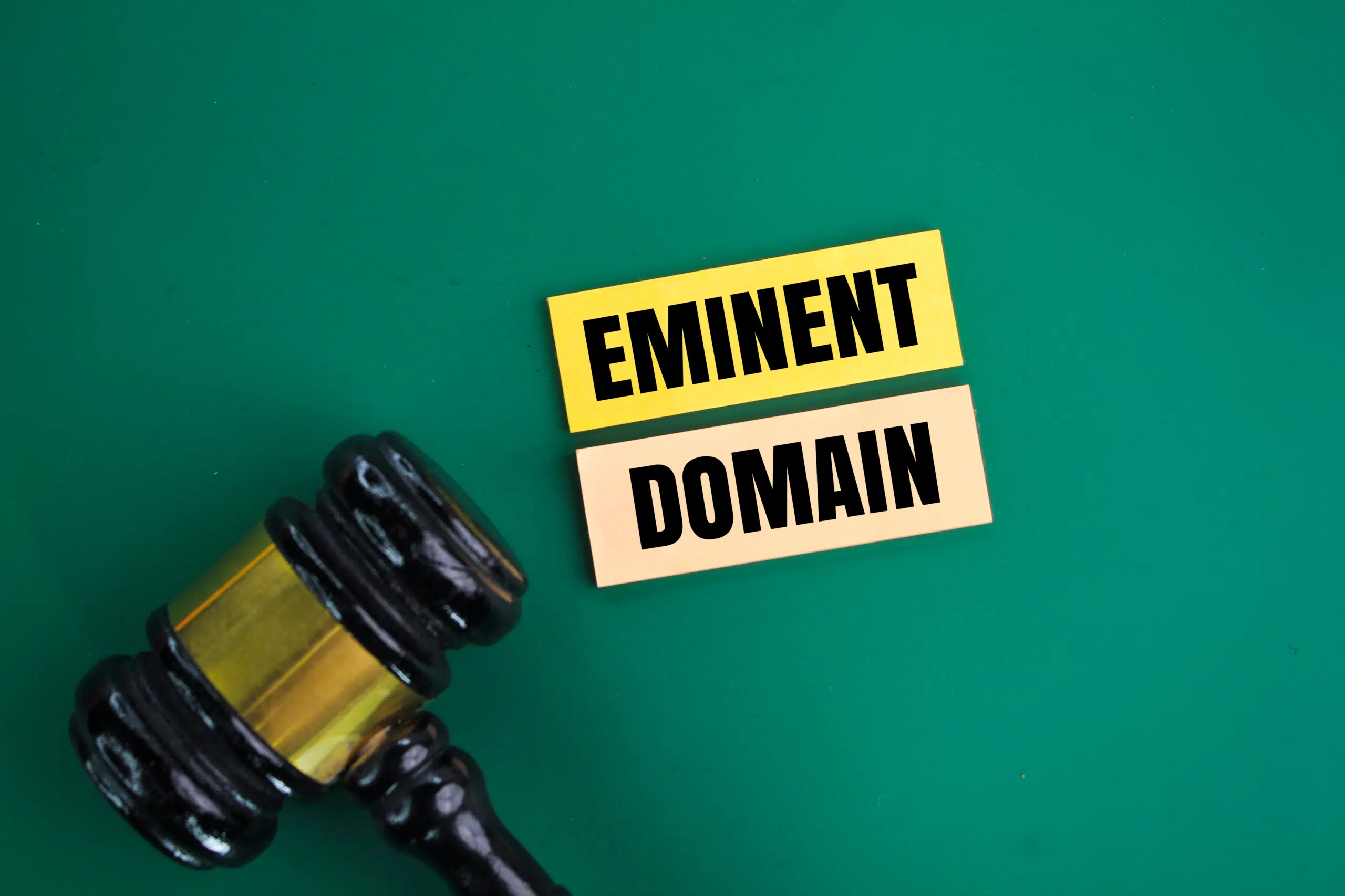Eminent Domain Taxation: How Tax Rules Can Affect Your Compensation Payout
Understanding the tax implications of eminent domain compensation can be complex. An eminent domain law firm in Houston, TX can provide crucial guidance on navigating these financial nuances, particularly in matters of eminent domain taxation.
When a government takes private property for public use, the compensation received may be subject to various taxes. It’s essential to differentiate between capital gains and ordinary income taxes, as well as to consider potential deductions and exemptions.
Proper planning and professional advice are vital to minimize tax burdens and maximize the benefits of the compensation received. The right legal counsel ensures compliance with tax laws and helps avoid unexpected tax consequences.
Quick Summary
Below is an overview of the key points of this blog article.
- If a property is taken under eminent domain, the landowner might owe taxes on the compensation received. The IRS treats this compensation, or part of it, as income from a taxable property sale. Landowners should be aware that this compensation is usually taxed by federal or state authorities.
- Landowners may delay paying taxes on eminent domain compensation by reinvesting the received funds into similar property within a set time frame. This tax deferral is similar to the rule under Section 1031, which allows for tax-free reinvestment in similar properties.
- When a property is taken by eminent domain, its assessed value for tax purposes often changes, affecting property taxes. For example, if part of a property is taken for a public project, the remaining land’s value might decrease, leading to lower property taxes.
- Section 1033 of the IRS Code provides some relief from taxes for property taken under eminent domain if certain conditions are met. Property owners can avoid recognizing gains for tax purposes if they replace the taken property within two to three years and the new property qualifies as “eligible property.”
- Section 1033 does not cover all types of compensation from a condemnation. Nonrecognition does not apply to interest, lost business profits, compensation for property destruction, or relocation costs. Property owners should consult with an attorney to understand the tax implications fully.
What Are Condemnation Taxes in Texas?
If your property was taken by eminent domain, you might owe taxes on the compensation received. When a government agency or another entity with eminent domain power takes private property, the landowner is entitled to “just compensation” for the property’s value.
This compensation, or part of it, is paid as the “purchase price” for the taken property, such as an easement, right-of-way, or full ownership of the land. Eminent domain taxation refers to how the IRS treats this process. Transferring real estate in exchange for payment is usually considered a taxable property sale.
What Are the Tax Implications of Eminent Domain Compensation?
When your property is taken under eminent domain, you may need to pay federal or state taxes on the compensation received. This payment is considered income, and the IRS typically taxes it. However, you might be able to delay paying these taxes.
One way to do this is by reinvesting the money you receive into a similar property. You must do this within a certain period. This allows you to defer, or put off, paying the taxes for now.
What is the Impact of Eminent Domain on Texas Property Taxes?
Eminent domains can greatly affect property taxes. When a property is taken through eminent domain, its assessed value for tax purposes usually changes. Property taxes are based on this assessed value, so if a property is fully or partially taken, the value can change a lot.
For example, imagine a property owner in Texas with a large piece of land. If part of this land is taken for a public highway, the remaining land might be worth less because it is next to the highway. This could lower the assessed value of the property and reduce the property taxes.
How to Minimize Condemnation Taxes in Texas?
As a landowner, you may want to reduce the tax impact of a condemnation action. The IRS Code has a rule in Section 1033 that provides exceptions to taxes for property taken by eminent domain.
This means you might not have to pay taxes on the compensation you receive if you meet certain conditions. In eminent domain taxation, Section 1033 works much like Section 1031 of the IRS Code, which also allows for certain tax exemptions, and in some cases may align with provisions under the Tax Relief Act.
Section 1031
Under Section 1031, when a landowner sells real estate, they can reinvest the money from the sale into a similar property and avoid paying income tax on the gains. This rule usually applies when you sell your home and use the money to buy a new home.
The profits from selling your home are not taxable if you use that money to buy your next house within a certain time frame.
Section 1033
Generally, when a private property owner sells real estate, they can reinvest the money from the sale into similar property and avoid paying income tax on the gains. This rule exists under Section 1031 of the Code. It is why you usually do not have to pay income tax when you sell your house and use the money to buy a new one, a principle that also aligns with certain provisions in the Tax Relief Act.
Section 1033 has a similar rule for property taken by eminent domain. Under Section 1033, property owners do not have to recognize gains for tax purposes if they meet certain conditions.
- Their property is taken by eminent domain, or there is a threat it will be taken soon
- They replace the taken property within a specified period, usually two to three years
- The replacement property qualifies as “eligible property” under Section 1033 (similar to the like-kind provision in Section 1031)
What Are Forms of Compensation Not Eligible for Nonrecognition Under Section 1033?
While it is important for property owners facing condemnation to know the exceptions in Section 1033, they also need to understand its limits. In eminent domain taxation, Section 1033 allows some gains from the forced sale of property to be excluded from taxes, but it does not apply to all compensation received from a condemnation.
Some forms of compensation that may not be eligible for nonrecognition under Section 1033 include:
- Interest, including damages for detention, delays, and late payments
- Lost business profits, treated as ordinary income
- Compensation for property destruction (in certain cases)
- Relocation costs and other expenses
Often, property owners get a lump sum for a condemnation award, making it hard to separate the compensation for different tax purposes. Therefore, before accepting just compensation or a condemnation settlement, it is important to talk about the tax effects with a lawyer from an eminent domain law firm in Houston, TX.
Efficient Legal Solutions for Eminent Domain Taxation Cases in Houston, Texas
Navigating the tax implications of eminent domain compensation requires experience and precision from an eminent domain law firm in Houston, TX. Vestige Law stands ready to guide property owners in Texas through this complex process. Our trusted lawyers understand the intricacies of tax laws and will ensure clients receive fair treatment.
With a personalized approach, we deliver clear, consistent advice tailored to each of our client’s unique situations. Choosing Vestige Law means partnering with a firm committed to protecting clients’ rights and achieving their business goals. Our legal team’s deep knowledge and dedication offer clients confidence and peace of mind.
Contact Vestige Law today for efficient, cost-effective legal solutions in eminent domain cases. We can also represent you in Business Law and Real Estate Law. Trust Vestige Law to handle every aspect of your case with professionalism and care.



